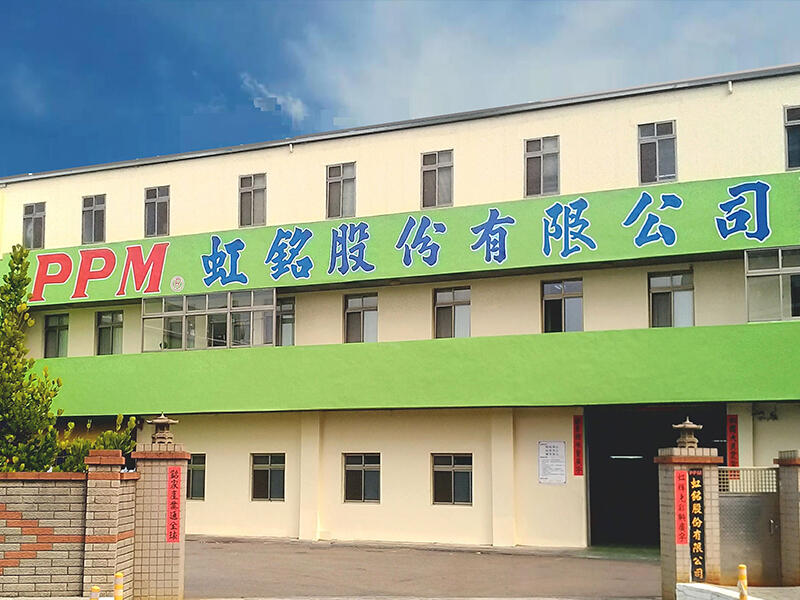Guide to Soft Magnetic Composite: Properties and Applications
Guide to Soft Magnetic Composite: Properties and Applications
Contents
Soft magnetic composite (SMC) is revolutionizing how we design and build electromagnetic devices, offering advantages such as flexibility, cost-efficiency, reduced energy loss, low noise, and ease of assembly.
In this article, Rainbow Ming aims to provide a comprehensive understanding of SMC, its structure and features, and how it is revolutionizing various industries. Together, let us explore the incredible features and applications of SMC.
What is Soft Magnetic Composite?
Soft Magnetic Composite, or SMC in short, is a transformative material used in a wide range of electrical and electronic applications. It has a unique structure where iron powder particles are coated with a thin insulating layer, which helps to minimize eddy currents. These eddy currents can lead to additional energy losses in magnetic components. This reduction in eddy current loss is particularly significant in high-frequency applications. SMC exhibits minimal energy losses (core loss) when subjected to alternating magnetic fields, which makes it highly efficient. Additionally, it has a high magnetic permeability, which means it can quickly become magnetized in a magnetic field.
In simple terms, SMC is a low magnetic material with high permeability, meaning it efficiently conducts magnetic flux. It's unique in that it can become highly magnetized in strong magnetic fields and return to a non-magnetic state when the field is removed. This property is crucial for their use in transformers, inductors, and other electromagnetic components.
Common SMC Materials
SMC materials come in various forms, each with its distinct characteristics. Common SMC materials include FF-0000, FY-4500, Sint D35, Somaloy 700 3P, and Somaloy 1000 3P, Somaloy 1000 5P.
Fundamental Properties and Advantages of Soft Magnetic Composite
1. Flexibility
SMC exhibits isotropic magnetic behavior, making it ideal for three-dimensional (3D) magnetic paths, particularly in AC applications. Its flexibility allows for innovative circuit and motor core designs, resulting in smaller, lighter electronic products. Besides, it is a versatile material that can be molded into various shapes and sizes, allowing for the customization of components to meet specific design requirements.
2. Cost Reduction
Utilizing powder metallurgy, an eco-friendly technology, SMC helps reduce manufacturing costs and time. Furthermore, eco-friendly powder metallurgy technology in SMC production aligns with modern sustainability goals. This reduces the environmental impact of manufacturing and can result in cost savings through compliance with environmental regulations and reduced waste disposal expenses.
3. Energy Loss Reduction
The insulating layers in SMC materials significantly reduce eddy current losses, improving energy efficiency, especially in high-frequency applications. This can lead to long-term cost savings for end-users due to reduced power consumption and enhanced performance.
4. Low Noise
SMC components generate minimal noise due to their low loss characteristics. This attribute ensures a quieter and more comfortable operating environment, especially in settings where reduced noise pollution is essential.
5. Time Efficiency
SMC components are known for their ease of assembly, which streamlines the manufacturing process and reduces assembly time. This increased efficiency contributes to overall production time savings, enabling manufacturers to meet production deadlines more effectively and cost-efficiently.
Applications of Soft Magnetic Composite Components
SMCs are crucial in various industries, primarily manufacturing cores for transformers, motor components, and electromagnetic devices. Their advantages extend to other automotive applications, including fast-switching actuators, inductive components, sensors, electric pumps, solenoid valves, generators, compressors, and more. Here, we delve into most of these uses:
Transformer Cores
SMC's exceptional magnetic properties make it an ideal choice for manufacturing transformer cores. Transformers play a crucial role in electrical distribution and power transmission systems. They work by altering the voltage levels of electricity, making it suitable for long-distance transmission and safe for household use. SMC cores enhance the efficiency and reliability of transformers, such as pulse transformers.
Electromagnetic Devices
Electromagnetic devices are the backbone of many industries. SMC materials are integral in the production of components for various electromagnetic applications. These applications include relays, solenoids, and electromagnetic brakes in automotive systems, industrial automation, and consumer electronics.
Solenoid Valves
Solenoid valves are found in various applications, including controlling the flow of liquids and gases in industries such as HVAC, automotive, and manufacturing. SMC components improve the performance and reliability of these valves. SMC components generate minimal noise. This characteristic is precious in applications where noise is a concern, such as HVAC systems or precision manufacturing.
Generators
From portable generators to large-scale power generation, SMC is employed in the cores of generators to enhance their efficiency and reliability, particularly in renewable energy applications like wind and solar power.
Compressors
SMC is used in compressors and as integral components in refrigeration, air conditioning, Ignition systems, and industrial applications. SMC allows these compressors to operate more efficiently, reducing energy consumption and environmental impact.
Automotive components and systems
SMC is making significant inroads in the automotive sector. Its benefits extend to electric motors, fast-switching actuators, satellite measuring instruments, ignition systems, electric pumps, positioning technology, automobile ABS systems, and more. With the automotive industry's increasing shift towards electric and hybrid vehicles, SMC's magnetic properties help enhance the performance and efficiency of critical systems in these vehicles.
Seeking The Best Soft Magnetic Components Manufacturer?
In conclusion, Soft Magnetic Composite (SMC) is important in electrical and electronic components. As explored in this guide, SMC's flexibility, cost-effectiveness, and ease of assembly make it a top choice for magnetic applications. The growing range of SMC applications significantly shapes our technological landscape. SMC's role in modern technology and industry is indispensable.
Rainbow Ming is the trusted source for those seeking reliable soft magnetic components, driving innovation and excellence in this transformative field. Established in 1975, Rainbow Ming is a professional soft magnetic component manufacturer. We take pride in our extensive knowledge and experience in soft magnetic component manufacturing, and we are constantly exploring new ways to improve our processes and technology. Our mission is to help our clients achieve their goals by providing them with the best products and services possible. Contact us for more information and to explore the applications of SMC in your projects.


